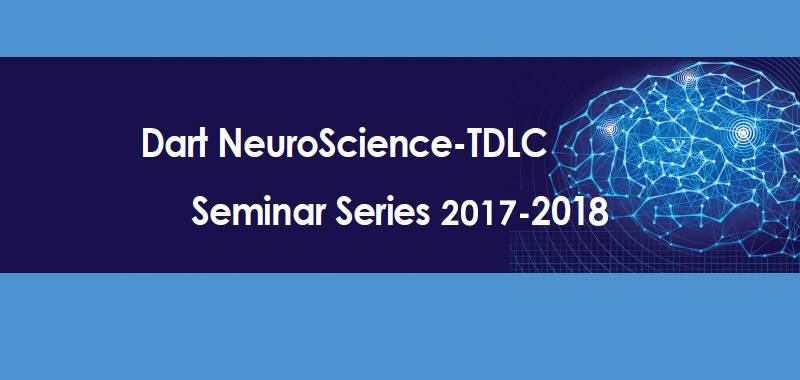Feb 21, 2018–Feb 21, 2018 from 4:00pm–5:00pm
Dr. Trevor W. Robbins from the University of Cambridge

http://tdlc.ucsd.edu/research/DNS/speakers/Robbins.html Abstract: Impulsivity and compulsivity represent complementary cases of dysexecutive control, of considerable relevance to psychiatry. Whilst there has been intense focus on the dimensional construct of impulsivity, compulsivity has received far less attention. A working definition of compulsivity is of actions persisting inappropriate to the situation, having no obvious relationship to the ultimate goal and often resulting in undesirable consequences. This definition can be dissected neuropsychologically in several ways which I will illustrate by describing behavioural, computational and neuroimaging studies in two prototypical and devastating disorders of compulsivity, stimulant drug addiction and obsessive-compulsive disorder (OCD). One notion is that compulsive behavior is uncontrolled and excessive habitual responding at the expense of adaptive goal-seeking behaviour. Habits are governed by stimulus-response representations that do not involve goals or rewards. These two forms of behavioural control have been characterized by studies in experimental animals and humans indicating mediation by distinct, though interactive, fronto-striatal systems. Hypothetically, addiction and OCD represent imbalance in these neural systems for goal-directed and habitual behaviour. I will examine several different ways of testing this hypothesis in stimulant drug abusers and patients with OCD and make comparisons indicating common, as well as distinctive, features of the two disorders. I will explore the implications of this research for causal accounts of behaviour including psychopathology, new therapeutic approaches, and the functional organization of fronto-striatal systems in the brain and their chemical neuromodulation. Bio: Dr. Robbins received his Ph.D. in Cambridge in 1975. He is a Fellow of the British Psychological Society (1990) the British Pharmacological Society (2017), the Academy of Medical Sciences (2000), and the Royal Society (2005), the most prestigious science society in the U.K. Dr. Robbins directs the ‘Behavioural and Clinical Neuroscience Institute’ (BCNI), the mission of which is to enhance translation from basic to clinical neuroscience with particular reference to impulsive-compulsive disorders including drug addiction. His interest in translation began with his co-invention in 1987 of the CANTAB computerized neuropsychological battery, which is currently used in over 700 institutes and clinical centers world-wide. He has received numerous awards, including sharing the ‘Brain Prize’ of the Grete Lundbeck European Brain Research Foundation, the most valuable in neuroscience, for his work on human mental disorders; the 2017 Gold Medal of the Society for Biological Psychiatry (USA) for work on cortico-striatal systems and their modulation; and, most recently, the Patricia Goldman-Rakic Award in Cognitive Neuroscience for work on fronto-striatal systems relevant to mental health.
Date and Time
Feb 21, 2018–Feb 21, 2018
from 4:00pm–5:00pm
Location
Sanford Consortium, Duane J. Roth Auditorium—2880 Torrey Pines Scenic Drive, La Jolla, CA 92037
Event Registration
Registration is not required for this event.
Event Fee
Presentation & Reception are both FREE
Contact
Keri O'Leary • kaoleary@ucsd.edu • 858-822-5805
Audience
Faculty, Staff, Students, The General Public
Event Host
Dart Neuroscience—TDLC